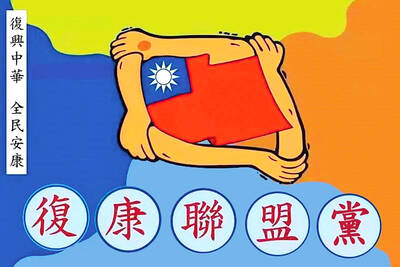Japan yesterday faced signs of mounting deflationary pressures and sluggish business investment as the world’s No. 2 economy reels from its worst recession since World War II.
Wholesale prices fell 3.8 percent last month from a year earlier, the steepest drop in nearly 22 years, the central bank said, raising concerns that Asia’s biggest economy is slipping into another bout of deflation.
Consumer prices turned negative in March for the first time in 18 months and the fear is that Japan may see a repeat of its 1990s deflationary spiral when falling prices led to weak consumer spending.
So far, however, the downward pressures are mostly due to falling energy and material costs, which is positive for ailing manufacturers, analysts said.
“Japanese companies have struggled to show profits due to high material costs and low product prices,” said Hiroshi Watanabe, an economist at the Daiwa Institute of Research. “The data show that the Japanese economy is starting to level off, which is a good sign.”
Another report showed Japan’s core machinery orders fell 1.3 percent in March from the previous month, much less than expected. The figures follow signs that exports and factory output may have bottomed out.
Finance and Economy Minister Kaoru Yosano said there were signs that the recession was abating but continued vigilance was needed.
“I welcome some signs of easing in the economic slowdown. But we need to remain alert about overall economic conditions,” he told reporters.
Japan’s economy entered recession in the second quarter of last year and suffered a brutal annual contraction of 12.1 percent in the last three months of the year. Analysts say the first quarter of this year was probably even worse. But recent data have suggested exports may be bottoming out, even if prospects for a full-fledged recovery appear dim.

AIR DEFENSE: The Norwegian missile system has proved highly effective in Ukraine in its war against Russia, and the US has recommended it for Taiwan, an expert said The Norwegian Advanced Surface-to-Air Missile Systems (NASAMS) Taiwan ordered from the US would be installed in strategically important positions in Taipei and New Taipei City to guard the region, the Ministry of National Defense said in statement yesterday. The air defense system would be deployed in Taipei’s Songshan District (松山) and New Taipei City’s Tamsui District (淡水), the ministry said, adding that the systems could be delivered as soon as the end of this year. The US Defense Security Cooperation Agency has previously said that three NASAMS would be sold to Taiwan. The weapons are part of the 17th US arms sale to

SERIOUS ALLEGATIONS: The suspects formed spy networks and paramilitary groups to kill government officials during a possible Chinese invasion, prosecutors said Prosecutors have indicted seven retired military officers, members of the Rehabilitation Alliance Party, for allegedly obtaining funds from China, and forming paramilitary groups and assassination squads in Taiwan to collaborate with Chinese troops in a possible war. The suspects contravened the National Security Act (國家安全法) by taking photos and drawing maps of key radar stations, missile installations and the American Institute in Taiwan’s headquarters in Taipei, prosecutors said. They allegedly prepared to collaborate with China during a possible invasion of Taiwan, prosecutors said. Retired military officer Chu Hung-i (屈宏義), 62, a Republic of China Army Academy graduate, went to China

INSURRECTION: The NSB said it found evidence the CCP was seeking snipers in Taiwan to target members of the military and foreign organizations in the event of an invasion The number of Chinese spies prosecuted in Taiwan has grown threefold over a four-year period, the National Security Bureau (NSB) said in a report released yesterday. In 2021 and 2022, 16 and 10 spies were prosecuted respectively, but that number grew to 64 last year, it said, adding that the Chinese Communist Party (CCP) was working with gangs in Taiwan to develop a network of armed spies. Spies in Taiwan have on behalf of the CCP used a variety of channels and methods to infiltrate all sectors of the country, and recruited Taiwanese to cooperate in developing organizations and obtaining sensitive information

BREAKTHROUGH: The US is making chips on par in yield and quality with Taiwan, despite people saying that it could not happen, the official said Taiwan Semiconductor Manufacturing Co (TSMC, 台積電) has begun producing advanced 4-nanometer (nm) chips for US customers in Arizona, US Secretary of Commerce Gina Raimondo said, a milestone in the semiconductor efforts of the administration of US President Joe Biden. In November last year, the commerce department finalized a US$6.6 billion grant to TSMC’s US unit for semiconductor production in Phoenix, Arizona. “For the first time ever in our country’s history, we are making leading edge 4-nanometer chips on American soil, American workers — on par in yield and quality with Taiwan,” Raimondo said, adding that production had begun in recent